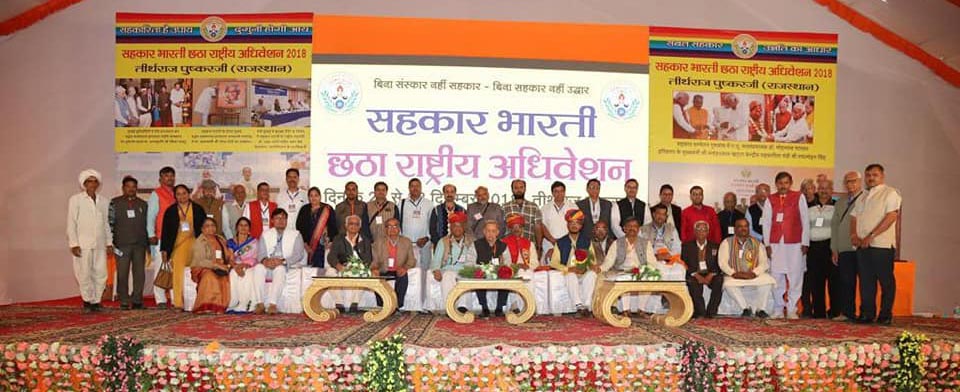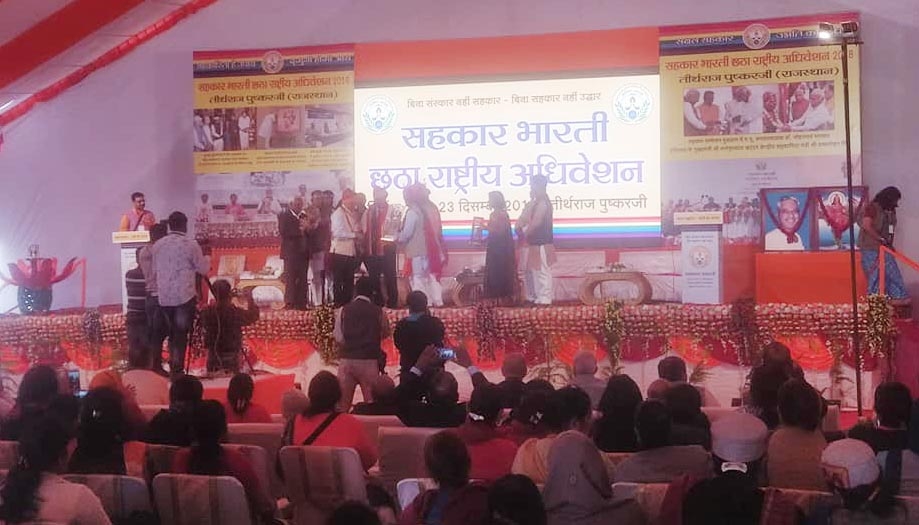Co-operatives are self-help Economic Enterprises and play a vital role in uplifting socio-economic conditions of their members and the surroundings in which they operate. Locally owned, people-centric CoOps have served as catalysts of social cohesion.
India is a developing country facing a variety of problems viz population explosion, low productivity, inequalities, low living standards, etc. Agriculture sector remains the livelihood to two-third of India’s population and gives employment to about 57% of work force.
Growth of CoOps have been impaired by inadequate resources, dependence on Governmental/Institutional support, bureaucratic and political interference and control.
Moreover, as a result of misconstrued economic policies pursued for the past several decades, weaker segments viz. small farmers, workers, tribals, economically backward communities, etc. are facing severe hardships and deprivation, resulting in severe economic imbalances and inequality. This situation has led to a strong and growing feeling of injustice and exclusion amongst the underprivileged.
Today as the Country faces unstable financial systems, growing inequality, rapid climate change and increased environmental degradation, the CoOp sector, especially in India, presents itself as an important tool to realise Sustainable Development Goals (SDGs).
With a view to achieve rapid development and social harmony, we need to promote CoOps, particularly, as there is a growing consensus worldwide about the important of role of CoOps in revitalising the economy, particularly, rural and agriculture.
Unfortunately, the Central and State Governments have so far refused to recognise the strengths of the CoOps and have failed to harness its potential to achieve growth through participation of people.
International CoOperative Alliance (ICA) Identity Statement, CoOp Principles, United Nations Guidelines of 2001 and ILO Recommendation No. 193 remain the foundation for formation of CoOps, defining the role of the State to create an enabling legal and financial environment while ensuring level-playing field for CoOps to operate on sustainable basis alongside other types of economic enterprises.
It is therefore the pressing need of the hour to resurrect CoOps in the Country by radically redrafting the CoOp Acts in the context of present economic, political and social scenario.
On the background of the Constitution conferring Right to form a CoOp as Fundamental Right, 6th National Conference of Sahakar Bharati held at Pushkar, Rajasthan demands and resolves that –
- State and Central Govts Acts should be consistent with the 97th Constitutional Amendment, Article 43B of the Constitution and CoOp Principles.
- State and Central Govt should also separately enact autonomous CoOp Acts for such CoOps which do not avail any Governmental support in the form of Loans, Advances, Guarantees, Refundable Equity, etc.
- CoOps are self help mutual institutions promoted to avail services by its members. Hence, a CoOp is not to be classified as a Business Organisation. Therefore, Income Tax should not be levied and benefit under Section 80P should be extended to all CoOps.
- We oppose the move in some States to dissolve District Central CoOp Banks and to compulsorily merge them into with the Apex Bank as these moves are prompted by ulterior political motives.
- State and Central Govts should formulate Policies for Development & Growth of the CoOp Movement. Similarly, Policies for Training and Capacity Building should be formulated and effectively implemented to strengthen the CoOp Sector.
- Post economic reforms initiated in 1991, the State has unfortunately relegated itself and has promoted Private Sector to provide many essential services/products to the common citizens which the Govt hitherto provided to the citizens. This has resulted in higher costs/prices and profiteering by some entities.
Therefore, State and Central Govts should formulate Policies to form and promote Public – CoOp Partnership Model to make available essential products/services at affordable rates in areas such as Medical Facilities, Electricity, Water, Piped Gas, Public Transport, etc.
- To promote Technological Upgradation, Digitalization, Strengthening CoOps financially and empowering them to promote Economic Growth, State and Central Govts should formulate enabling Policies for CoOps to Raise Capital and Funds through Innovative Financial Instruments and to provide Listing and Trading platform for such instruments. This would make available adequate funds to the CoOp Sector.
- World over CoOps are recognised as Economic Enterprises and they are provided the same incentives and facilities that are provided to other forms of Economic Enterprises.
In the same vien, State and Central Govts should extend similar incentives and facilities and apply same norms of Ease of Doing Business to CoOps Enterprises as they are applied other forms of entities engaged in Economic activities.
- Instead of creating an enabling Legal and Financial framework for Growth and Development of CoOps as envisaged in the Constitution, we strongly oppose moves to privatise CoOp entities.
Resolution proposed by:
Dr Uday Joshi, Ntl Gen Secretary, Sahakar Bharati
Seconded by:
Shri Jyotindrabhai Mehta, Savrakshak, Sahakar Bharati, Rajkot
Shri Vivek Chaturvedi, President, Madhya Pradesh
Shri Pritpal Belchandan, Chairman, Durg DCC Bank, Durg
CA Keshav Harodia, Dhanbad, Jharkhand
Dr Geeta Patel, Chairperson, Udaipur Milk Federation, Udaipur
Shri Pravin Singh Jadaun, Gen Secretary, Lucknow, UP
Shri Vinod Chaplot, CEO, Samruddhi Mahila Sah Bank Ltd, Udaipur














































